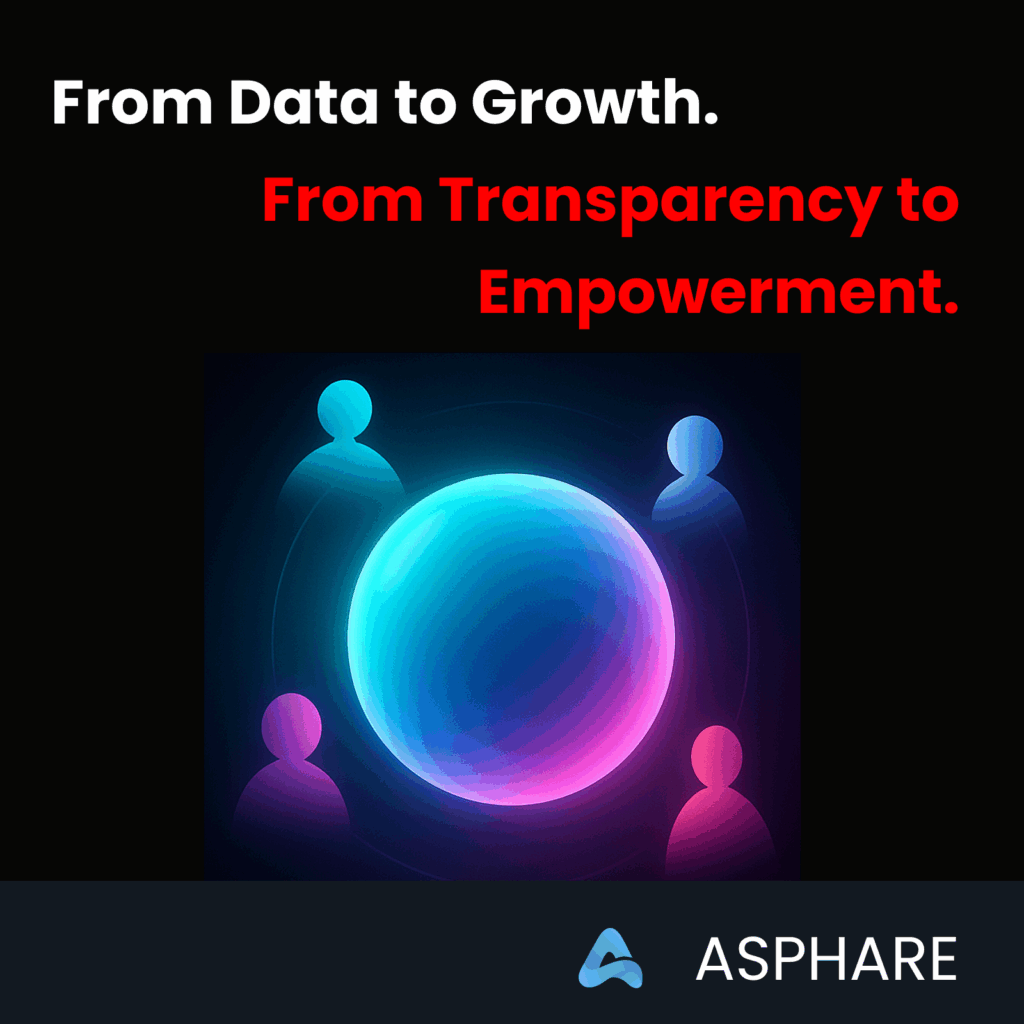The future of performance is not about monitoring — it’s about empowerment.
When employees gain real visibility into their own work patterns, energy levels, and progress, data becomes more than numbers — it becomes a mirror for growth, balance, and meaning.
That’s the power of transparency: it transforms analytics from something you fear into something you own.
1. Empowerment Through Clarity
When people understand their data, they make better decisions — for themselves and for their teams.
ASPHARE’s transparent approach allows every user to see their own Core Scores:
Engagement, Vitality, Fulfillment, and Performance.
Each score provides personal insights:
- Engagement shows where you make the strongest impact
- Vitality reveals your balance between effort and recovery
- Fulfillment reflects how meaningful your work feels
- Performance gives unbiased, data-supported feedback
Together, they help individuals focus on what truly sustains their growth and energy — not just their output.
2. Trust as a Performance Multiplier
Trust is not built by collecting less data.
It’s built when data is used transparently and respectfully.
That’s why ASPHARE gives full control to every employee:
- Clear visibility into what’s collected
- Consent-first architecture for every data category
- Simple, one-click export and deletion
When people trust the process, they engage with the insight.
And when they engage, performance follows naturally.
3. A Culture of Shared Responsibility
Transparency doesn’t just empower individuals — it strengthens entire teams.
Leaders can finally see where to support, not where to pressure.
HR can make fairer, data-backed decisions.
Employees can set boundaries and track progress on their own terms.
That’s the new leadership model: mutual visibility, shared growth, collective trust.
4. From Data to Well-Being
Analytics should not drain people — they should energize them.
When employees can see the early signals of overload or disengagement, they can act before it becomes a problem.
This is how ASPHARE helps teams stay resilient: through insight, not oversight.
Transparency empowers prevention — not reaction.
